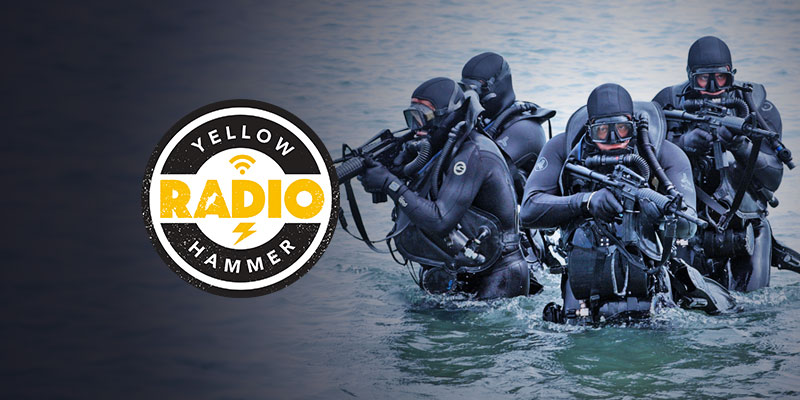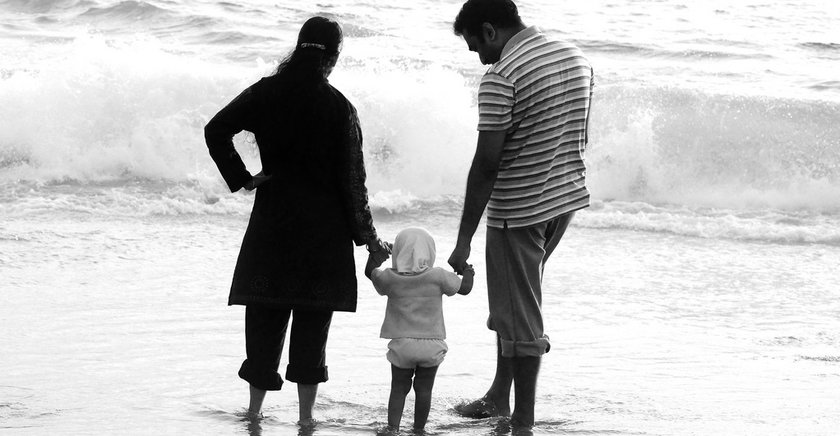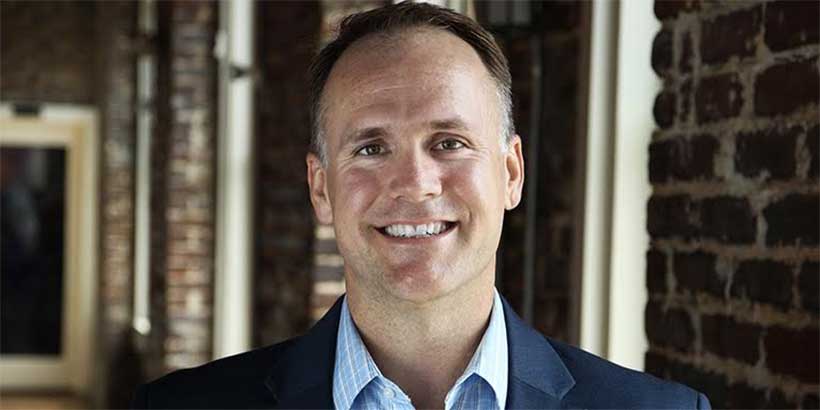Cord Sachs is a Birmingham-based leadership expert and the CEO of FireSeeds, a company that helps companies find and grow great leaders and “the company behind many of Alabama’s fastest growing companies.”
The full conversation with Mr. Sachs can be heard on the Yellowhammer Radio podcast or in the video above, and a lightly edited transcript of his interview with Yellowhammer’s Andrea Tice and Scott Chambers can be read below.
Subscribe to the Yellowhammer Radio podcast on iTunes or Stitcher. Learn more about Cord Sachs and Fireseeds at www.fireseeds.com
Scott Chambers: We have got a special guest with us, now. It’s Mr. Cord Sachs from FireSeeds. We haven’t talked to Cord in a couple of weeks. He’s been busy traveling the world.
Andrea Tice: Where you been, there, Cord?
Cord Sachs: Wow, been a lot of places. Probably the most exciting, I was out in Coronado, California.
Andrea Tice: Oh, okay. Where is that in relation to the state? Is it up north or south?
Cord Sachs: Oh, no, it’s down south. It’s a little island that’s literally three football fields away from San Diego.
Andrea Tice: Oh, okay. Wow.
Cord Sachs: You get on the one end of the island and you got literally the skyline of San Diego right in your viewpoint.
Scott Chambers: Yeah, when we have a Warrior Wednesday and all the Navy SEAL guys talk about being at Bud’s they’re there at Coronado. That’s where they go through their training at, on that island.
Andrea Tice: Oh, okay.
Cord Sachs: Absolutely. You go to the opposite end of the island and that’s where the Bud’s training takes course, the Naval base on the opposite end of the island. Exactly.
Andrea Tice: Okay, Cord, we were talking about Hillary Clinton’s secret dream to become a pastor. Is this your secret dream? Were you trying out for the Navy SEALs? Come on, you can confess.
Cord Sachs: I’d have to say I’m little past my age, but I wish I could. I love everything-
Andrea Tice: That’s not stopping Hillary.
Cord Sachs: -they represent. My dad was a Marine and I grew up hearing the stories. It was always a dream of mine. Then God had me on a little different track, but yeah, I’m a big fan for sure.
Scott Chambers: What was the biggest takeaway from your visit there to Coronado?
Cord Sachs: Well, you know, when you go to a place like that- I had to go pick up a new leadership book, of course, and so I picked up one by Jocko Willink and [inaudible 00:01:39] “Extreme Ownership.” There’s nothing like reading about leadership in the context that makes it come alive. That was what I did. My wife actually loves that kind of stuff, too. She reads all the books. We were actually there and they were actually going through a class that just Hell Week while we were there.
Andrea Tice: Oh, wow.
Scott Chambers: Nice.
Cord Sachs: Man, just took it all in. Of course, I gotta come on here today and talk about just some of the top leadership principles I’ve been able to pull from SEALs and some of the Special Forces, etc., etc.. That’s where we’re gonna go today.
Andrea Tice: Okay.
Scott Chambers: I’m guessing you’re going to tie that in today, some type of leadership lesson to the Navy SEALs, I would imagine. After being out there for a week, it’s still pumping through you blood, right?
Cord Sachs: Oh, you better believe it is. You better believe it is. I would encourage anybody that wants to learn about leadership, I mean, who to better learn from that those that have applied those principles where it matters most? In the life and death scenarios in the trenches, they’re the ones that I’m really gonna believe when they say, “Hey, this is a leadership lesson you need to apply to make a team successful.” Absolutely.
Andrea Tice: Go ahead and list us some of those things that you’re pulling away from your time there.
Cord Sachs: Yeah, let’s do three. Let’s do three quick little- The first one is every great leader you see that’s in all the SEALs and the SEAL teams, they believe wholeheartedly in the mission and they make their teams, they make sure their teams, believe wholeheartedly in the mission.
Andrea Tice: Okay.
Cord Sachs: Simon Sinek, another one of my [stabler 00:03:12] leadership guys, he says that’s just as important to do here in business or in teams outside of warfare, and you start by telling the why, making sure your team understands the why. I don’t know if you’ve seen the “American Sniper” movie with Chris Kyle.
Andrea Tice: Yes.
Scott Chambers: Yes.
Cord Sachs: In that movie, he’s watching the why on television, if you can remember. Before he decides to go into the [inaudible 00:03:38] he’s watching 9/11 happen as we all did on our TVs.
Andrea Tice: Yeah.
Cord Sachs: This group of warriors that was launched out into the Middle East never had a clearer why than those Twin Towers falling. You saw at that time a huge growth in all the recruitment, a huge influx of young leaders because they saw a very clear why, believe in a mission that made sense for them to sign up, become a Navy SEAL, and go over and kick some tail over in the Middle East. The belief in the mission is what you see is the most important thing you gotta start with, is making sure your folks believe in the mission. That’s number one.
Andrea Tice: Okay. In your opinion, what sets the SEALs or any other special force leadership apart from leadership that is seen and played out in the marketplace? How do you see that played out in the marketplace?
Cord Sachs: Well, you know, you do see it played out in the marketplace. It’s just, again, the stakes aren’t nearly as high here. They are high, and the leadership principles, they apply across the board. There’s no doubt. But there’s just something about those that have tried the leadership principles, again, in the trenches and has come out and said, “This is what works to push a team forward.”
One of the second principles that you see and that these SEALs abide by is that there are no bad teams, only bad leaders.
Andrea Tice: Oh, okay.
Cord Sachs: I love that statement because this what the books call “extreme ownership.” This is the level of ownership that any SEAL team leader has for his unit. There are no bad teams, there are only bad leaders. They take responsibility for literally every aspect of every mission. I love the quote here, is that “the best leaders check their egos at the door and they accept the blame.” They seek out constructive criticism after every mission. They take detailed notes for improvement. They can always improve.
You hear the saying, but the great leaders, they take responsibility for all of the mistakes and they give all the glory to their team for all the successes.
Andrea Tice: Wow.
Cord Sachs: You see this just played out in these warriors that are just larger than life, but there’s always this element of humility that they have, that the mission always comes first and their team always comes before them. Again, just walking out, reading this, and then seeing and talking to a lot of these retired Naval admirals on this island while we were there, it was just phenomenal to see the level of humility that they really do have for what they got to do in their lives.
Andrea Tice: That really is extreme ownership, because I’ll tell you, if that was ever employed nowadays into the political realm, 90% of all politicians would have to leave because they can’t bear to take the responsibility on themselves.
Cord Sachs: Absolutely. Yeah, no, absolutely. I saw that in my dad. I saw him live that out in front of me. He was a contractor and he’d help me learn to frame a wall, to sheetrock a wall, and when I’d mess up he’d say, “You know, that’s not your fault. That’s me. I need to train you more. I need to give you more reps. If I gave you more reps you’d do better.” He celebrated me when I did something well. I got to see that play out with my dad and just the power and influence it had in my life.
Andrea Tice: That’s neat, ’cause you’ve drawn on that personally.
Scott Chambers: Right.
Andrea Tice: Yeah.
Scott Chambers: That’s awesome. I’ve got a question, Cord. You’re always talking about ownership for everything, you know? Will your people begin to feel that you don’t trust them? That makes me think, “Well, maybe if you’re always talking about the ownership, maybe they’re not gonna trust you as much.” How do you keep all the ownership and then give them their part to own up to or see a role to play, maybe?
Cord Sachs: No, that’s a great question. I think that’s a principle that plays out in that you don’t ever give away ownership, but you do give away responsibility. There’s a big difference. I fall guilty of this at times, too. I wanna get the burden of ownership off of my shoulders, so I give ownership away so that I’m no longer responsible. If I maintain ownership, but yet I give responsibility away, now I’ve got great balance between what is expected of me as the leader, having complete ownership and making sure I at the end of the day take all the credit for whatever happens wrong, and therefore I own it, too. I can give away all the credit when it’s very successful. That’s when I found the sweet spot.
A lot of people get tired of owning and so they give ownership away. There’s a big difference. When you give responsibility away, if you do it right, you do it by giving it away with three mini principles here. You gotta clarify the lens. Here’s the win of your responsibility. If you do this right, you’ll get a win. If you don’t, you’ll get a loss. You set the standards for what it would take to get the win, and then you simply hold the responsibility to what they’re responsible for as it pertains to the role they have.
Scott Chambers: Cord, we’re down to our final 30 seconds today.
Andrea Tice: That is a wonderful challenge that you just presented for leadership.
Scott Chambers: Yes.
Andrea Tice: Very, very compelling.













